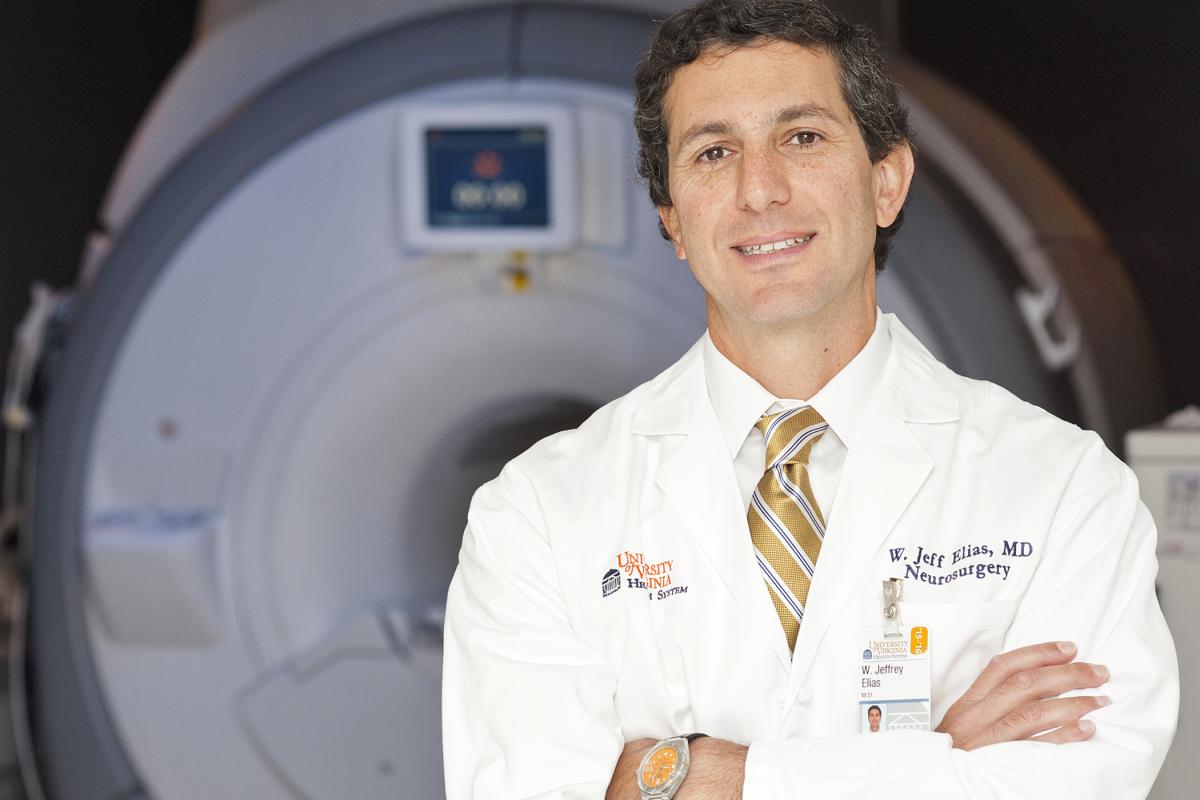Together, we must make a commitment to fuel discovery and foster the next generation of neuroscientists and clinicians. The pace of discovery is getting faster, but for those impacted by neurological conditions, it’s still not enough. By supporting neuroscience research at UVA, you have the power to change lives.
Life-Changing Discoveries
Alzheimer's: Dr. George S. Bloom is trying to stop Alzheimer’s disease before it starts. The first part of his plan involves identifying patients who are likely to develop the disease. Part two administers the FDA-approved drug memantine to patients before they exhibit symptoms. Bloom’s team has identified a cell cycle that results in excess calcium build up in the brain—a cell cycle that is blocked by memantine. Currently, he is working with Dr. Carol Manning, director of UVA’s Memory & Aging Clinic, to design a clinical trial to investigate the feasibility of the concept. As research progresses, we have begun to understand that diseases like ALS, Alzheimer’s, epilepsy, and Parkinson’s relate to one another on a sub-cellular level. Further exploring these similarities offers hope for therapeutic advances that could ameliorate many diseases simultaneously.
Dr. John Lukens, an assistant professor in the Center for Brain Immunology and Glia, studies how the immune system drives a variety of neurological conditions, including Alzheimer’s. By defining which components of the immune response accompany specific diseases, Lukens hopes to discover targetable approaches for treatment. Similarly, his lab is also pursuing research to learn more about the mechanisms of specific genes that have recently been discovered to have a role in Alzheimer’s. Learning more about the genetic factors leading to disease could lead to new pathways to treatment.
Focused Ultrasound: Imagine not being able to write a letter to your children, or hold a cup of coffee steady. What if you couldn’t control the movement of your head or the shakiness of your voice? For the 5-10 million Americans living with essential tremors, these are everyday realities.
Now a groundbreaking treatment pioneered at UVA by Dr. Jeff Elias has been approved by the FDA to treat essential tremors that don’t respond to medications. Focused ultrasound concentrates high-intensity sound waves to generate heat. Guided by magnetic resonance imaging (MRI), doctors can target the sound waves with accuracy to ablate, or burn away, the area that causes the tremors without damaging nearby tissue.
Elias and his team have also earned FDA approval to treat the symptoms of Parkinson's disease using focused ultrasound. Their plans for the future include treating debilitating pain and addiction with the groundbreaking technology.
None of this would have been possible without a robust partnership between UVA Health System, the Commonwealth of Virginia, and the Focused Ultrasound Foundation, which brought the research to Charlottesville. Private support from benefactors and friends helped speed clinical trials.
Stroke Care and Research: If you or a loved one has a stroke, every minute counts. After a stroke, brain cells surrounding the blocked artery begin to die. Rapid evaluations are essential to providing the right treatment to maximize recovery. UVA Stroke Center provides the highest level of care for stroke patients undergoing an acute stroke episode, as well as those who have recently suffered from a stroke and require follow-up treatment. But what happens if a patient lives in a rural area and faces long transport times?
UVA is pioneering several programs to improve outcomes. Andy Southerland, MD, MSc, and Sherita Chapman-Smith, MD have developed a novel diagnostic program to provide stroke consultation to rescue squad personnel through iPads, helping diagnose patients in the ambulance before they reach the hospital. Meanwhile, Nina J. Solenski, MD, director of the Stroke Telemedicine and Tele-education program (STAT), and the team of neurologists at UVA are improving stroke care using technology to offer all patients access to around-the-clock, on-call specialty care.
In addition, Karen Johnston, MD, MSc, is leading a clinical trial to determine the best way to maximize recovery for diabetic patients having a stroke. Her findings will set the standard of care nationally. Kevin Lee, PhD, is developing novel ways to deliver therapeutics straight to the brain. And Brad Worrall, MD, MSc, is harnessing what we are learning from the Human Genome Project to design new drug compounds. His investigation into the mechanics of stroke may one day give healthcare providers the ability to intervene before a stroke even happens.
Interested in learning more? Email Kelly Reinhardt, Director of Development, Neurosciences:

